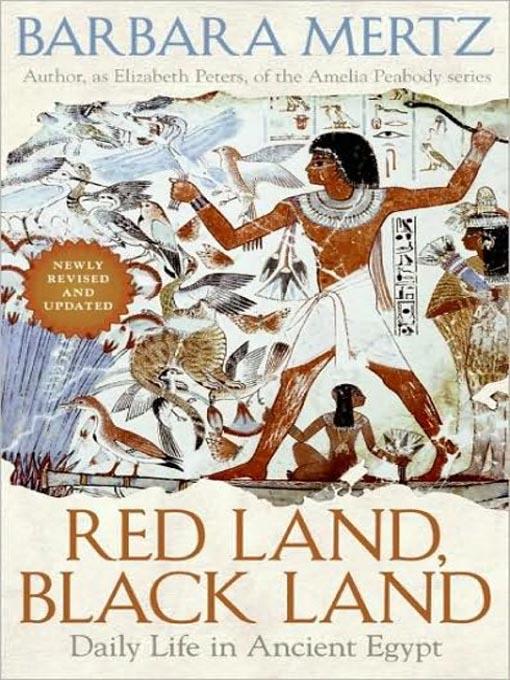
Red Land, Black Land
Daily Life in Ancient Egypt
فرمت کتاب
audiobook
تاریخ انتشار
2008
نویسنده
Lorna Raverناشر
Tantor Media, Inc.شابک
9781400175758
کتاب های مرتبط
- اطلاعات
- نقد و بررسی
- دیدگاه کاربران
نقد و بررسی

Lorna Raver immerses herself in renowned Egyptologist Barbara Mertz's fascinating and exquisitely detailed account of daily life in ancient Egypt. In a pleasantly modulated voice, with plenty of high drama and frequent witticisms, and no hints of pedantry, Raver takes us back thousands of years and introduces us to Egyptians of many strata--pharaohs, queens, painters, slaves, scribes, temple builders--showing us their everyday ways of life with respect to marriage, birth, food, beer, wine, orgies, rituals, clothing, sexual practices, religion, the construction of magnificent temples and tombs, and beliefs regarding the afterlife. Be forewarned, this is a long production, but it's never boring. In fact, the time seems to fly by. M.T.B. Winner of AudioFile Earphones Award (c) AudioFile 2008, Portland, Maine

March 3, 2008
When Mertz first published this book in 1966, she was among the first of the "new breed" of scientific archaeologists using sophisticated, detailed mapping and analytical techniques. The torrent of data produced by this new wave over the past 40 years has given Mertz plenty of material with which to update her works on Egypt (including the recently republished Temples, Tombs & Hieroglyphs). Mertz's style remains informal and down-to-earth, and her impeccable scholarly credentials never lead her to overstate or dogmatize; she is candid about what is still unknown and what's speculative, and organizes carefully the evidence against discredited theories. Though much of what is known about ancient Egyptians concerns those wealthy enough to have built elaborate tombs, the excavation of Deir el Medina, a workers' village near Thebes, has revealed much in recent decades about craftsmen, laborers, peasants and slaves. Mertz's description and analysis of architecture, wall paintings, sculpture, personal artifacts and papyrus manuscripts (religious texts, inventories, magical recipes, correspondence and even fiction) illuminate vividly the way ancient Egyptians ate, worked, dressed, behaved, entertained, made war, made love and prepared for death. With this thorough update, Mertz may once again inspire a new generation of archaeologists.

























دیدگاه کاربران